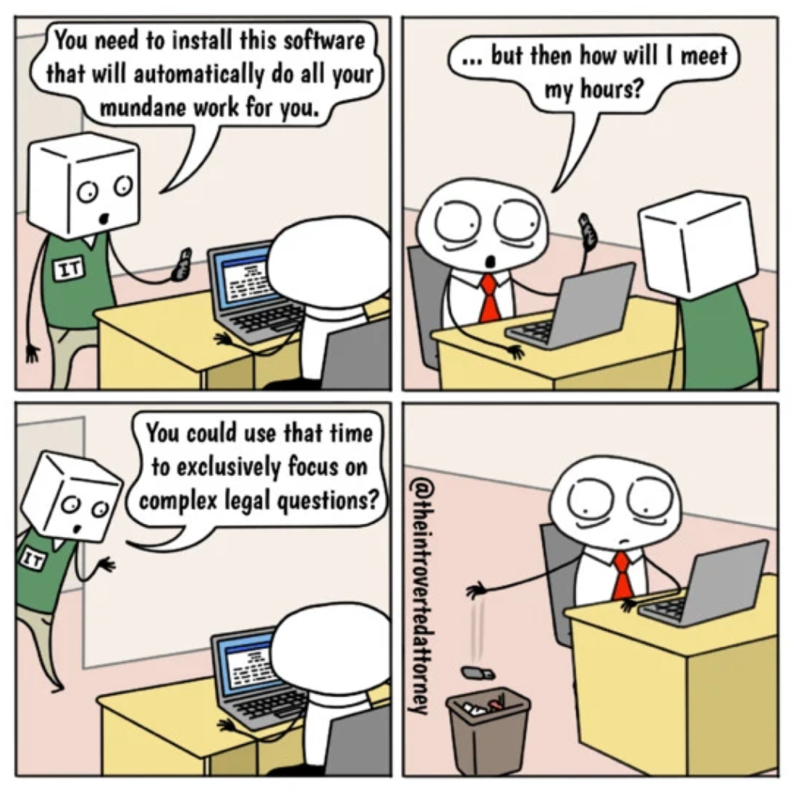A conversation with Joshua Morrison
In The Future is Here Faster Than You Think, futurists Peter Diamandis and Steven Kotler examine everything from autonomous vehicles and Virtual Reality (VR) advertisements to the use of Aritifical Intelligence (AI) in healthcare and finance. We are living in a world where technological progress accelerates at an exponential rate and science fiction is quickly becoming science reality. These emerging technologies and new innovations are rapidly transforming the legal landscape, challenging the way law is practiced, and creating new fields and roles to be filled. According to Forbes, “one of our biggest struggles in the future of the law profession is [that] law schools…[are] still generating 20th-century lawyers when what we need is 21st-century lawyers.”
At the beginning of this semester, the Faculty of Law welcomed Joshua Morrison as the Director of the newly minted Future of Law Lab (the “Lab”). According to its website, the Lab is designed to become “a hub of interdisciplinary inquiry and activity providing initiatives and information about the changing face of the law and legal profession.” I sat down with Morrison over Zoom to discuss how law students can prepare for their careers in light of the changes generated by the explosion of technological advancement and innovation.
According to the McKinsey Global Institute, existing technology can automate 23% of legal work. This percentage will likely increase as AI-driven software becomes more powerful, thereby rendering legal analytic tools more effective and efficient. Professor Maura R. Grossman demonstrated the potential power of machine learning during electronic discoveries at the Lab’s inaugural event held last month. Using an algorithm she created to recognize and prioritize documents based on inputs from a lawyer, Professor Grossman showcased how the technology was able to sort through over 290,000 emails to produce the 38 message exchanges that were relevant to a mock scenario.

Over the last couple of years, many firms have embraced innovative legal technologies in their practice, creating initiatives such as Osler Works. However, this does not necessarily mean that lawyers will be replaced by AI. Rather, technology is freeing up our time and changing the way we engage with legal issues and clients. Morrison believes that soft skills, like the ability to communicate with clients from different industries, will rise in importance as future lawyers spend less time on administrative tasks and document review.
Technological growth has also led to the creation of new and non-traditional legal career paths. Precedent Magazine notes that the “types of jobs that law-school graduates can pursue are also in a state of flux.” We can expect to see changes ranging from the continued expansion of non-traditional law-firm roles to the increase in legal-tech entrepreneurialism. Morrison commented on emerging roles, such as legal project managers who can take advantage of legal analytic tools to proactively manage performance outcomes and make strategic decisions. Being well-positioned for what is to come would likely require some tech-savvy and reflection on where the industry is going.
All of this exciting, but may also feel daunting at first, especially given the myriad of tech jargon and complex algorithms involved. However, Morrison encouraged students to not be intimidated by the tech world. “It’s okay to jump in with no background,” he said. “No one is expecting you to be an expert from day one.” Morrison then went on to share his own story. Prior to becoming Director of the Lab, he worked at a family law dispute resolution start-up and was the Program Manager at Ryerson’s Legal Innovation Zone.
“I had no previous development experience. I was not an entrepreneur,” Morrison noted. “I had a traditional business and legal background like many of the students at the law school right now.”
Morrison encouraged students to seek out opportunities in an incubator or accelerator to observe first-hand how diverse teams are built and to witness the challenges that start-ups try to address. He said that becoming “part of that ecosystem” was eye-opening for him and credited the time he spent working in an incubator as a “critical period of growth” in his career.
As the practice of law changes and new opportunities open up to young lawyers, legal education must also evolve. In addition to continuing the Lab’s speaker series, which is set to feature future guest presenters such as Catherine Lacavera (VP Litigation at Google), Morrison shared that the Lab is currently looking into other exciting initiatives.
While nothing is set in stone yet, Morrison hinted at the possibility of running legal design thinking workshops that teach law students how to use design thinking when solving legal issues. For the outgoing 3Ls who are disheartened that they may not get the chance to partake in upcoming initiatives, Morrison stressed that the Lab seeks to ensure alumni involvement in future events.
I am also hopeful that the Lab will create more spaces at the law school where law students can learn alongside and innovate with other students from different disciplines and backgrounds, like computer science, engineering, business and design. This appears more crucial than ever, as the lawyers of the 21st-century need to be more agile and able to thrive in diverse, and perhaps, non-conventional teams and in novel environments. At the end of the day, Morrison commented, it is about “being willing to step out of your comfort zone and jump into an area that you’re not an expert in […] yet.”





